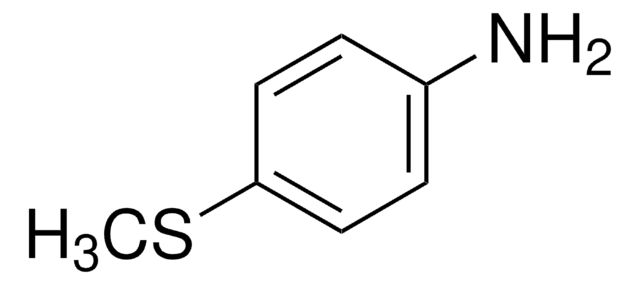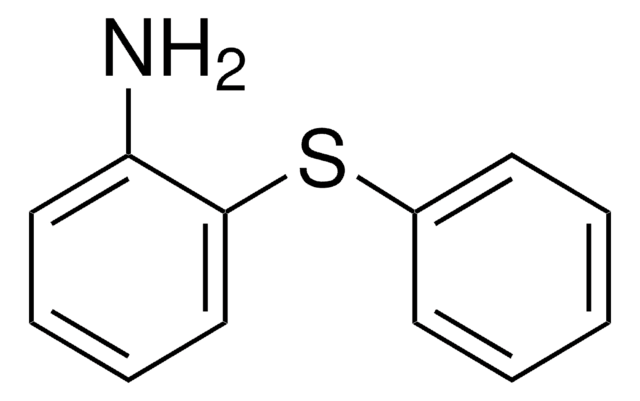M54201
2-(Methylthio)aniline
97%
Synonym(s):
2-(Methylmercapto)aniline, 2-Aminothioanisole
About This Item
Recommended Products
assay
97%
refractive index
n20/D 1.624 (lit.)
bp
234 °C (lit.)
density
1.111 g/mL at 25 °C (lit.)
SMILES string
CSc1ccccc1N
InChI
1S/C7H9NS/c1-9-7-5-3-2-4-6(7)8/h2-5H,8H2,1H3
InChI key
WBRPQQSADOCKCH-UHFFFAOYSA-N
Looking for similar products? Visit Product Comparison Guide
signalword
Danger
hcodes
pcodes
Hazard Classifications
Acute Tox. 3 Oral
Storage Class
6.1C - Combustible acute toxic Cat.3 / toxic compounds or compounds which causing chronic effects
wgk_germany
WGK 3
flash_point_f
>235.4 °F - closed cup
flash_point_c
> 113 °C - closed cup
ppe
Eyeshields, Faceshields, Gloves, type ABEK (EN14387) respirator filter
Certificates of Analysis (COA)
Search for Certificates of Analysis (COA) by entering the products Lot/Batch Number. Lot and Batch Numbers can be found on a product’s label following the words ‘Lot’ or ‘Batch’.
Already Own This Product?
Find documentation for the products that you have recently purchased in the Document Library.
Customers Also Viewed
Our team of scientists has experience in all areas of research including Life Science, Material Science, Chemical Synthesis, Chromatography, Analytical and many others.
Contact Technical Service











